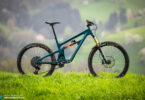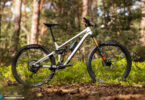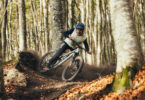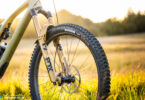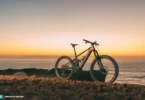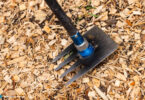South Africa – the name alone fills you with longing. Epic landscapes, untamed nature, impressive mountains and famous wine regions. We visited the widely recognised Stellenbosch near Cape Town to check out the trails and the wine, finding flow, stark contrasts and a bit of The Matrix – luckily without having to dodge any bullets!
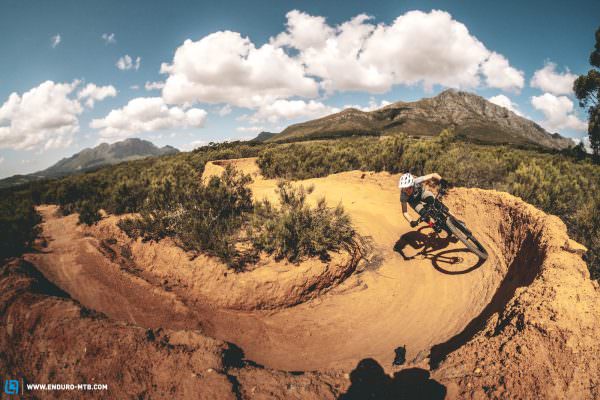
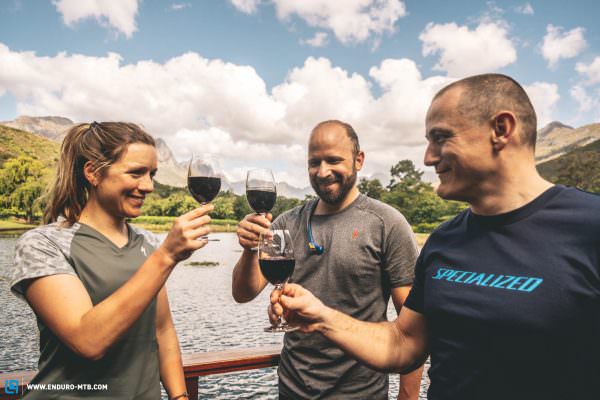
Back when the world was still in order, or rather in the old order, much was taken for granted. For example, flying halfway around the world for a meeting instead of a quick Zoom call or wine tasting at a long table with friends instead of an online tasting with wines that came in the mail the day before, toasting each other via the webcam. It’s the same story here: you just don’t realise how much you take for granted.
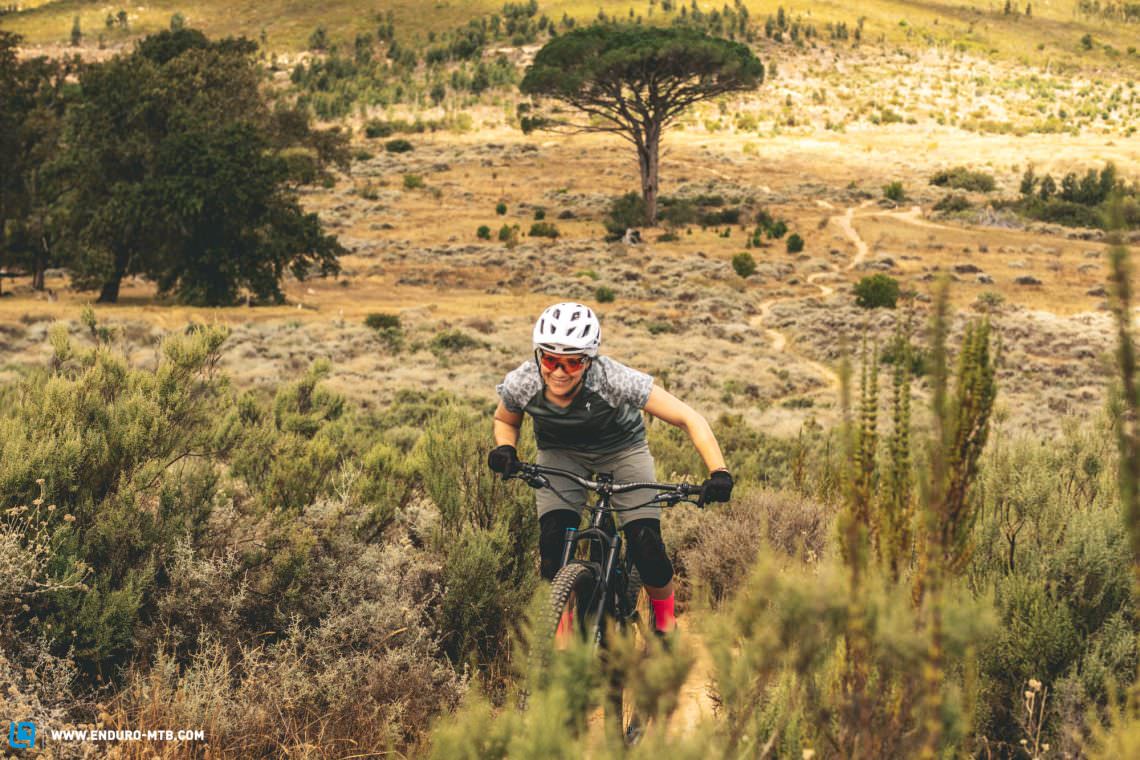
Privileges taken for granted
In the early days of E-MOUNTAINBIKE, it was almost routine for us to meet up with our trusted beverage dealer Jens in Leonberg for a glass of good wine. As wine enthusiasts, we tasted everything we could get our hands on – preferably red wines from the famous wine-growing regions of Rioja, Bordeaux, Tuscany or Apulia. After years of searching, the small South African winery Stark Condé became a favourite. The fact that exotic fruits and vegetables and clothing, but also iPhones, laptops and fine wines from all over the world are lining the shelves of our local stores is the result of globalisation, and it’s a privilege that has become so self-evident that we no longer recognise it as such. In South Africa, you can’t help but be confronted with the fact that it all comes at a price.
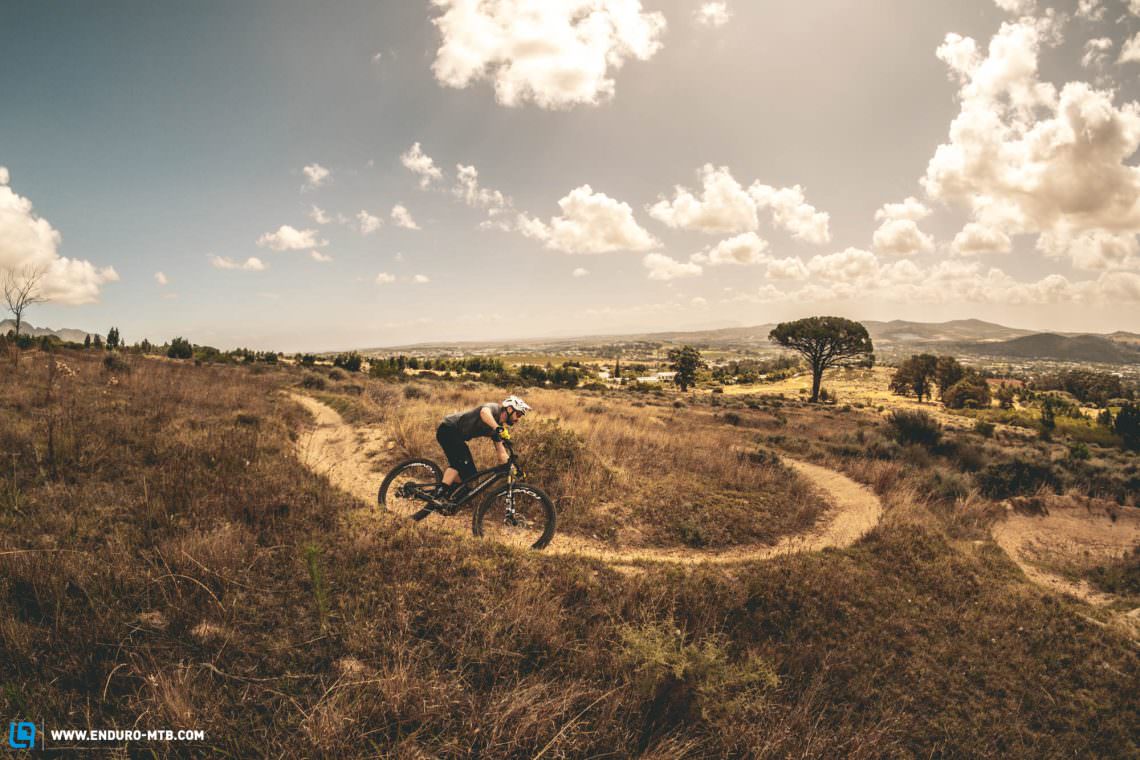
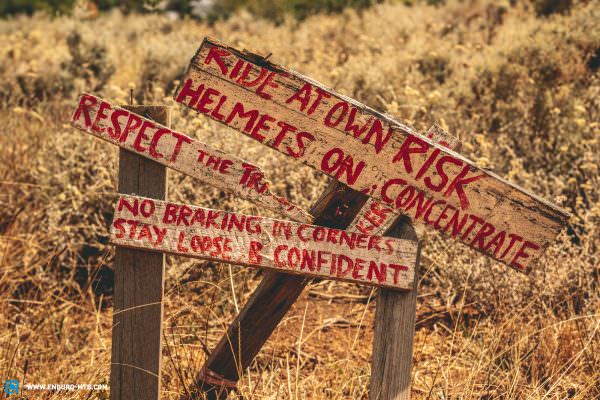
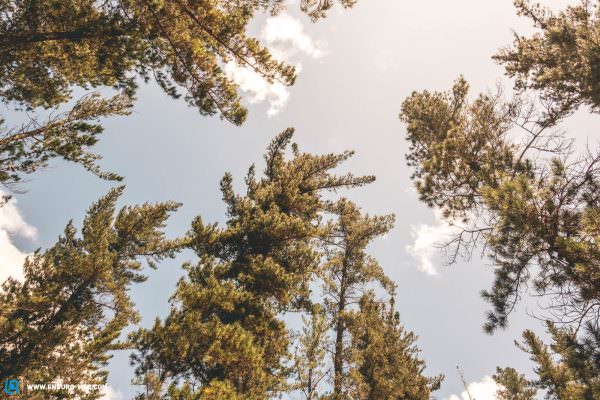
We must admit, as bike journalists, we belong to a very privileged subset of people whose professions allow them to experience things that money can’t buy. As a mountain bike editor, what was perceived as extraordinary by regular bikers was ordinary to you and the extravagant was self-evident. Testing the latest products in the world’s best bike spots before anyone else got to lay their hands on them and meeting all the biggest local names over a short weekend was considered the norm. After all, a good story opens many doors!
The hamster wheel of the privileged
The world of bike media has been on hold for around two years – no product launches in Whistler, Moab, Auckland, Santa Cruz or Cape Town, for which a European magazine “had to” fly halfway around the world. Downsizing instead of upsizing, local instead of global, online instead of offline: these are the new mantras of the bike brands that previously tried to outdo each other and themselves year after year. While this jet-set journalism lifestyle might sound like every rider’s dream, it certainly wasn’t stress-free. The tightly packed schedules and embargoes, jet lag, too much work and too little time sometimes felt like being caught in a hamster wheel. Too much of a good thing is just that: too much! And though you get to travel the world on business, you don’t have the time to explore and get to know the amazing places that you visit.
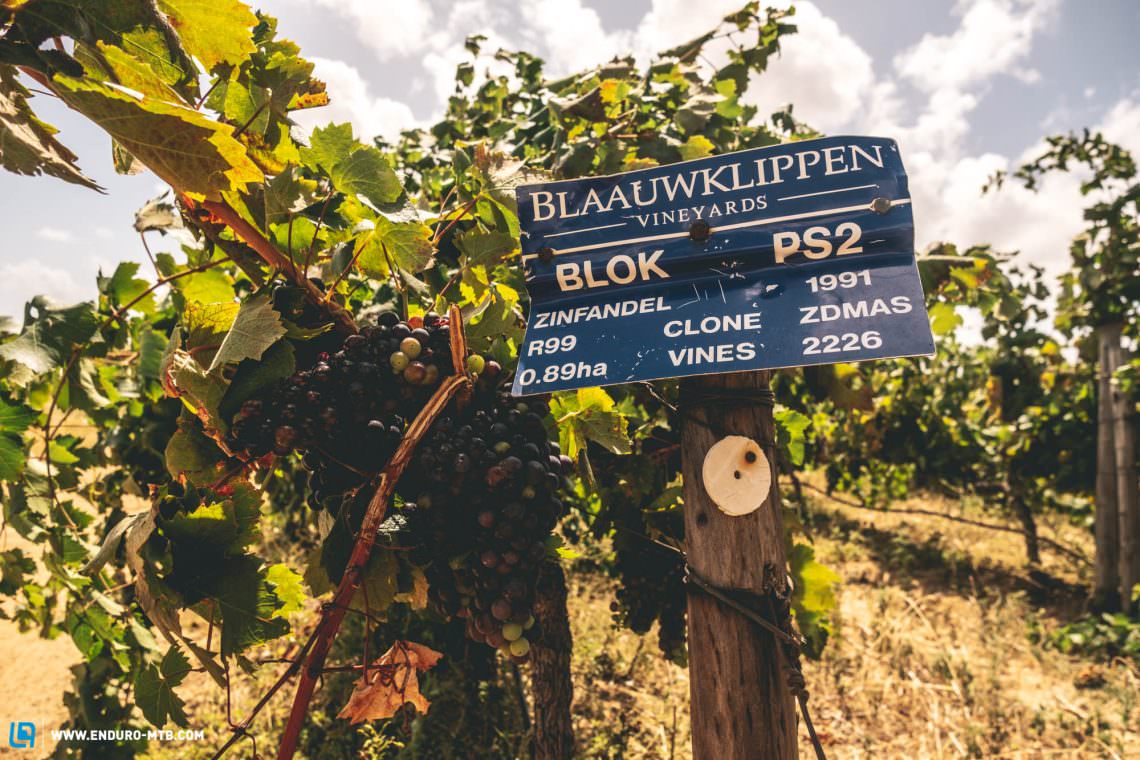
Carpe occasionem – Recharge the ebikes
When we heard that Specialized would launch their then-new Levo SL in South Africa, we knew we had to extend the trip by a few days. Why not take the opportunity to explore Cape Town and enjoy a little break! The fact that the Specialized launch would be hosted near our favourite wine farm was a surprise and a good reason to change our plans. Long-time readers will know that we’re always up for spontaneous adventures: we love discovering new things and prefer seizing the opportunity rather than overthinking it and missing our chance. So, two quick talks later and we persuaded Specialized ambassador Hannah Barnes and Levo chief developers Marco and Jan to recharge the ebikes after the official launch for a bit of South African trail and wine tasting!
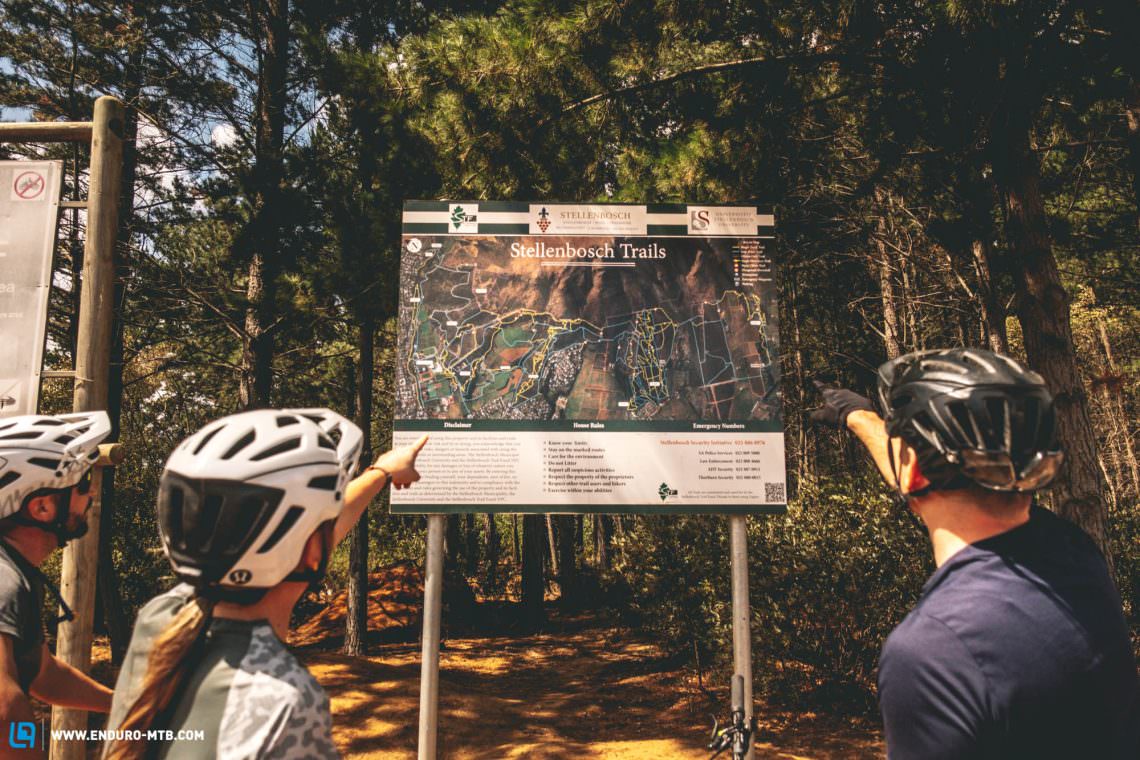
Stellenbosch – The South African wine and bike paradise
Technically, the geographic zone where Stellenbosch is located is too hot for viticulture, neighbouring the Tropic of Capricorn. Nevertheless, there are hundreds of wineries around Cape Town – above all in Stellenbosch, Paarl and Franschhoek. Thanks to the fertile soil and the cool breeze blowing in over the Atlantic, creating a temperate maritime climate, the region is perfect for the cultivation of high-quality grape varieties despite its geographical zone. The harvest takes place between February and April, but, fortunately, they still had wine when we arrived in January. ;)
Almost a fifth of South Africa’s wines are produced in Stellenbosch, so it’s no wonder the region is a wine lover’s paradise – though bikers also get their money’s worth! The region doesn’t just boast countless trail networks and bike spots, some of which are located on a winery, but it’s also world-renowned for the legendary Cape Epic stage race. The international bike scene is deeply rooted in Stellenbosch, having hosted UCI Downhill World Cups as early as 1997 and drawing numerous professionals to the region for winter training ever since.
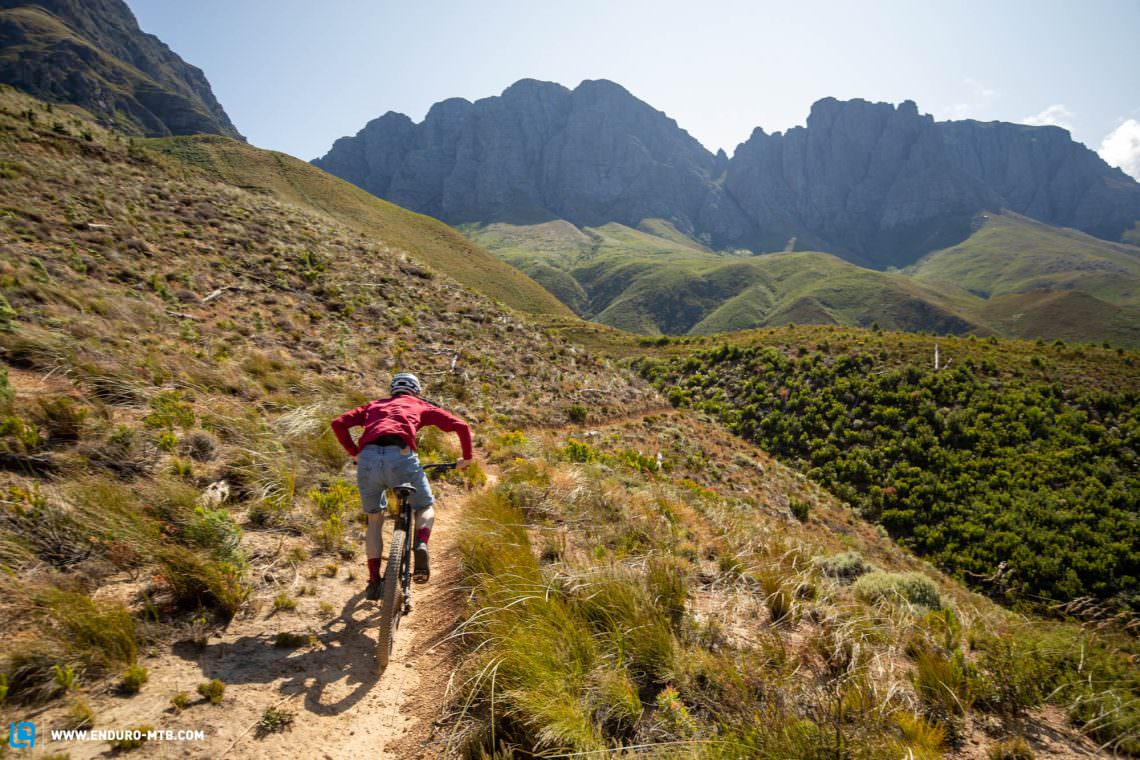
Part I: Will you take the blue or the red pill?
“Firearms and knives prohibited on the trails” – a warning sign at the trailhead continues the narrative that we’ve experienced or at least heard about since arriving at the airport. The contrast between rich and poor, idyllic paradise and brutal crime is omnipresent. It’s not just the countless gated communities within sight of the townships, the green golf courses in the middle of otherwise arid vegetation, large wine farms that are run by whites and worked by blacks. However, it would be wrong to see it all in black and white. The social situation and social contrasts are a lot more complex and not much different than in the West, just more obvious. But more on that later.
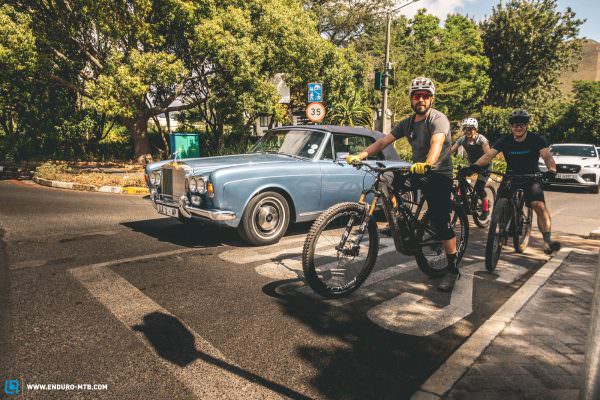
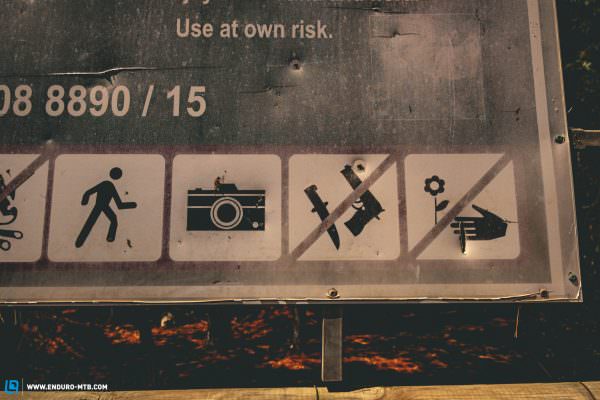
Just like the warning sign at the trailhead, the locals also warn us about the dangers. Naturally, we get scared and ask ourselves if we’re safe. What if we get mugged? We’re told that we shouldn’t ride alone even on popular trails like G-Spot near the University of Stellenbosch. And that we shouldn’t walk without company at night – even in Stellenbosch. Although we had no scary encounters throughout our trip, it was evident that the whites and the rich live in fear, barricading themselves and not daring to roam freely in what seems like paradise. But it’s not just the whites and the rich that live in fear, but also the blacks and the poor on the other side of the spectrum. Notably, it’s the crime in the townships that’s responsible for the country’s high crime statistics. It’s largely safe for tourists if you simply stick to certain rules since the South African police and judicial system come down a lot harder on crimes committed against tourists.
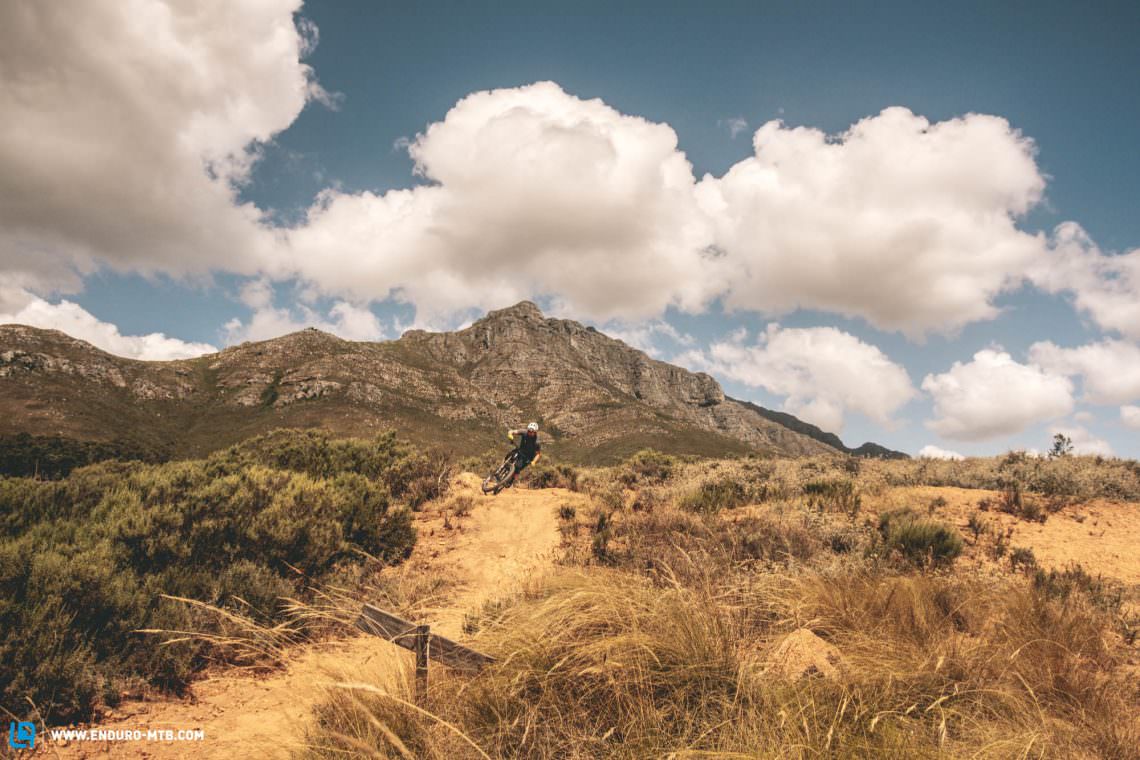
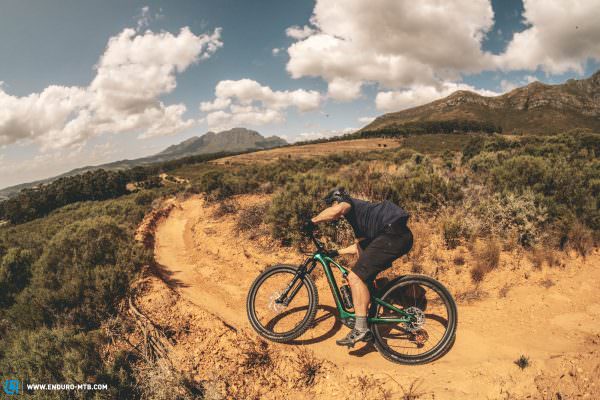
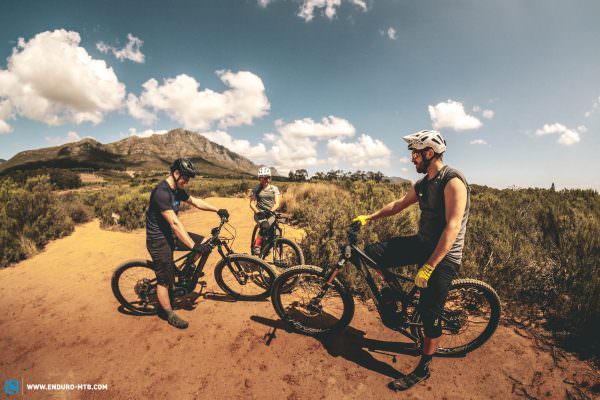
G-Spot flow and Blaauwklippen Family Market – A heavenly combination!
In Stellenbosch, a 5-minute bike ride can be all it takes to escape from one world and immerse yourself in a completely different one. As soon as you start pedalling, you find yourself in singletrack heaven. During the Specialized event, we were guests at the Blaauwklippen winery, which is a good base camp for the flowing G-Spot trails, offering open terrain, the finest berms, jumps and rollers – perfect for trail surfers of all kinds! That’s not all, though! If you go riding at the weekend, you can visit the winery, which was founded in 1682 and doesn’t just produce its own wines, but also gins and brandies. Along with a dedicated restaurant, the Blaauwklippen Family Market opens every weekend, placing great value on local and organic food, products and goods. Since South Africa is a melting pot of cultures with a wide variety of nationalities and people from all over the world having gravitated there over the centuries, the market itself feels like a small American festival. We can’t recommend it enough!
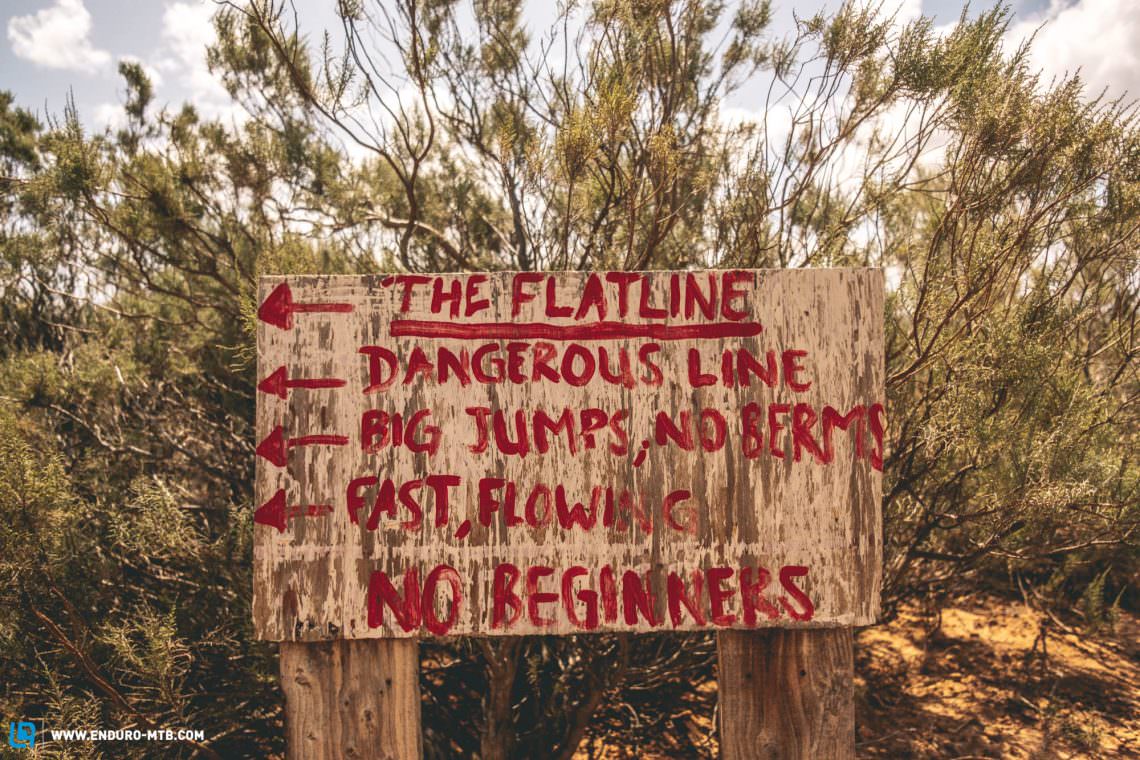
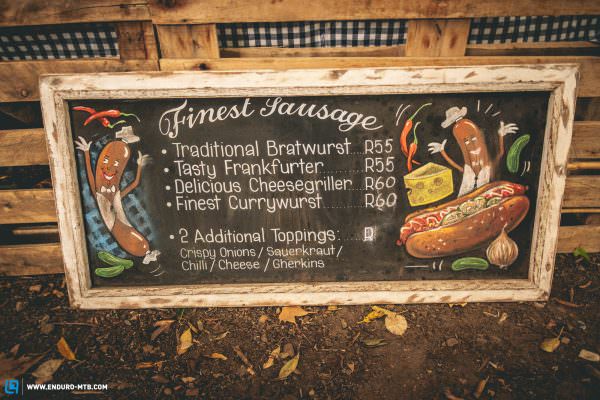
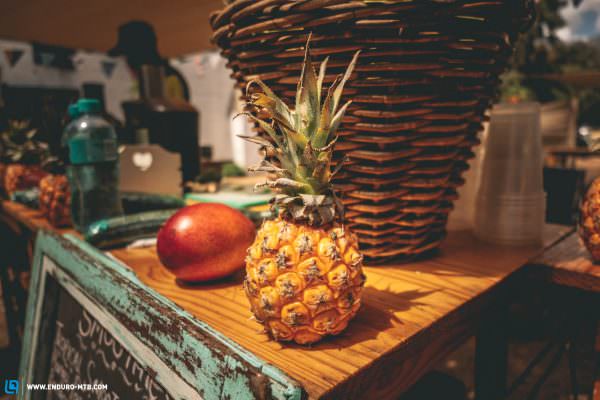
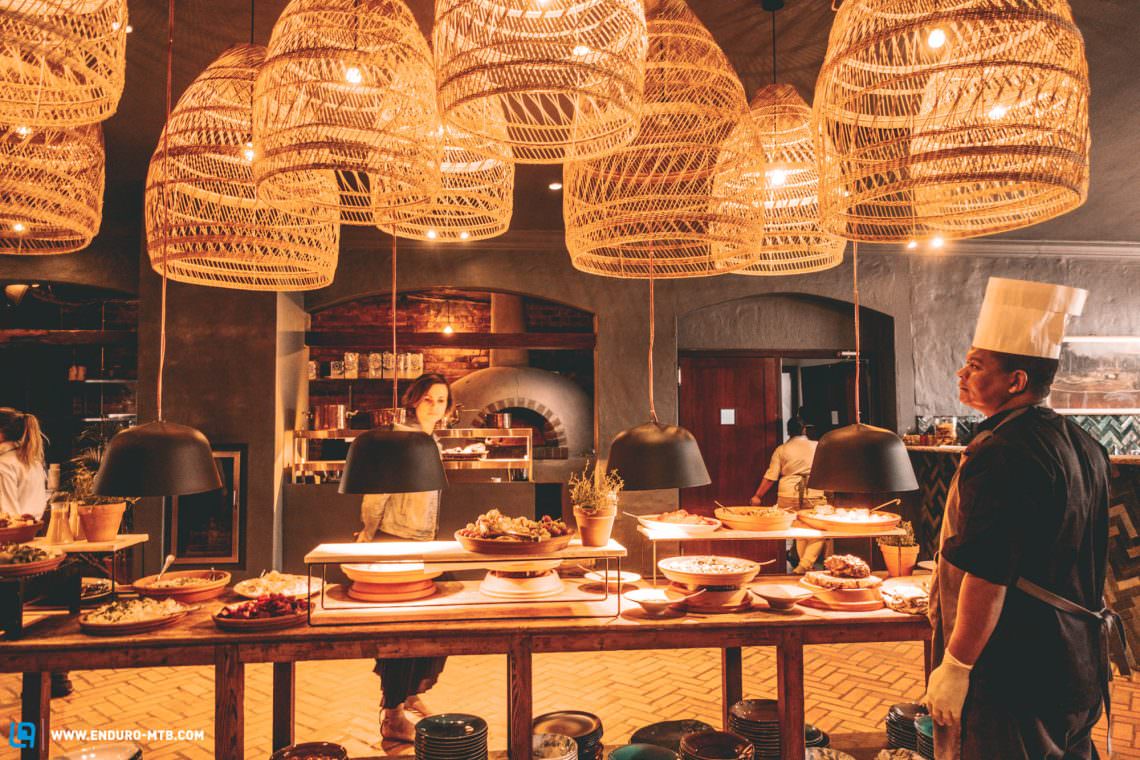
Jonkershoek – Baboons and hellfire
If you plan to go riding in Jonkershoek on the southeastern edge of Stellenbosch, it’s best to get up early. Noon temperatures can reach up to 40 degrees Celsius, so you’ve got to plan your days well. The nature reserve covers about 11,000 hectares and is open to mountain bikers, offering countless hiking and biking trails, bordering directly on wineries – of course – and on the Balance Coffee Roastery.
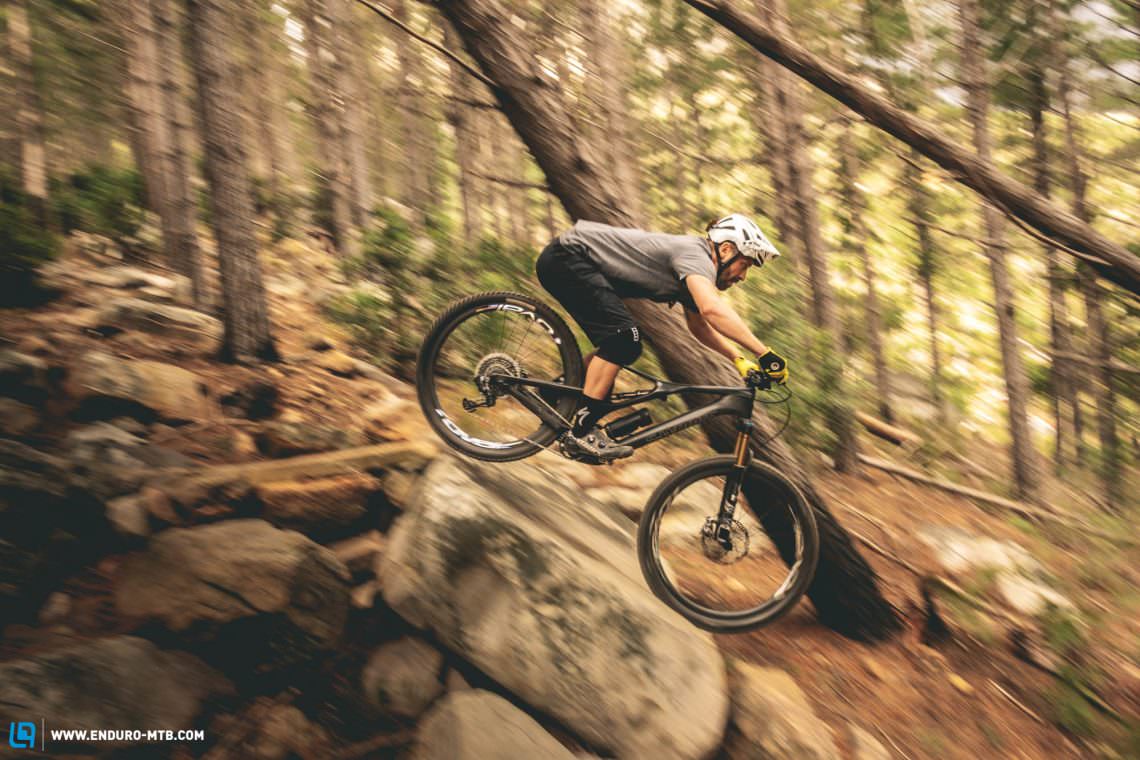
The Ride In Cycling Café offers plenty of parking and makes for the ideal starting point for a bike ride in Jonkershoek, giving you direct access to the trail network. Converted, the trail pass costs less than 2 euros per person, giving you access to a total of 56 eMTB trails that cater to all skill levels. The trails are just as carefully composed as the local South African wine: balanced, often perfectly shaped and a real pleasure. From flat and flowing to rough and gnarly, you’ll find everything a biker’s heart desires. Depending on where you ride, you’re likely to encounter troops of baboons. There are snakes, leopards and even honey badgers, but you see them very rarely if at all…
Due to the climate and vegetation, there is a high risk of forest fires in this trail paradise, which you can see – many of the mountains are void of large trees because of the regular fires. Accordingly, there is little shade on most trails and it’s important to always have enough to drink and manage your fluid intake!
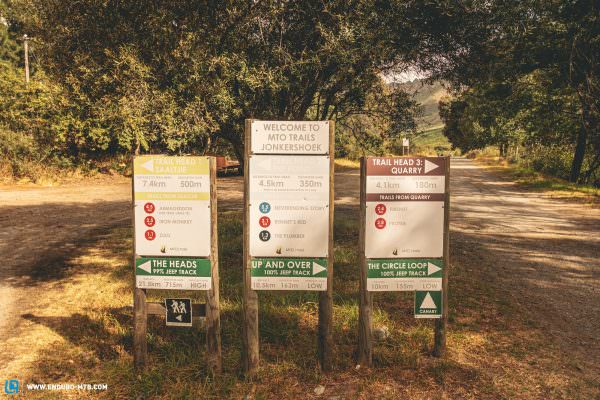
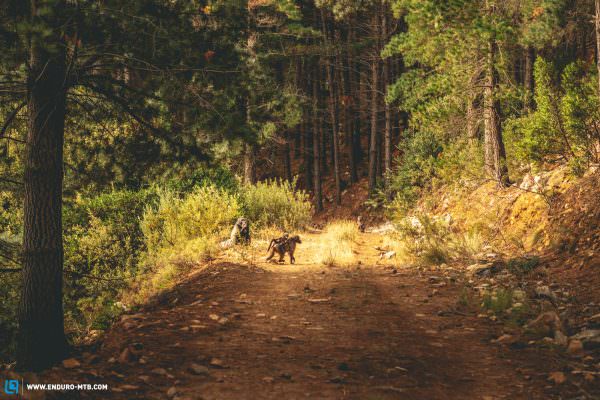
Speaking of rehydration: if you start riding early, you’ll still have half the day ahead of you, so why not make a change and treat yourself to a wine tasting instead of the obligatory post-ride beer?
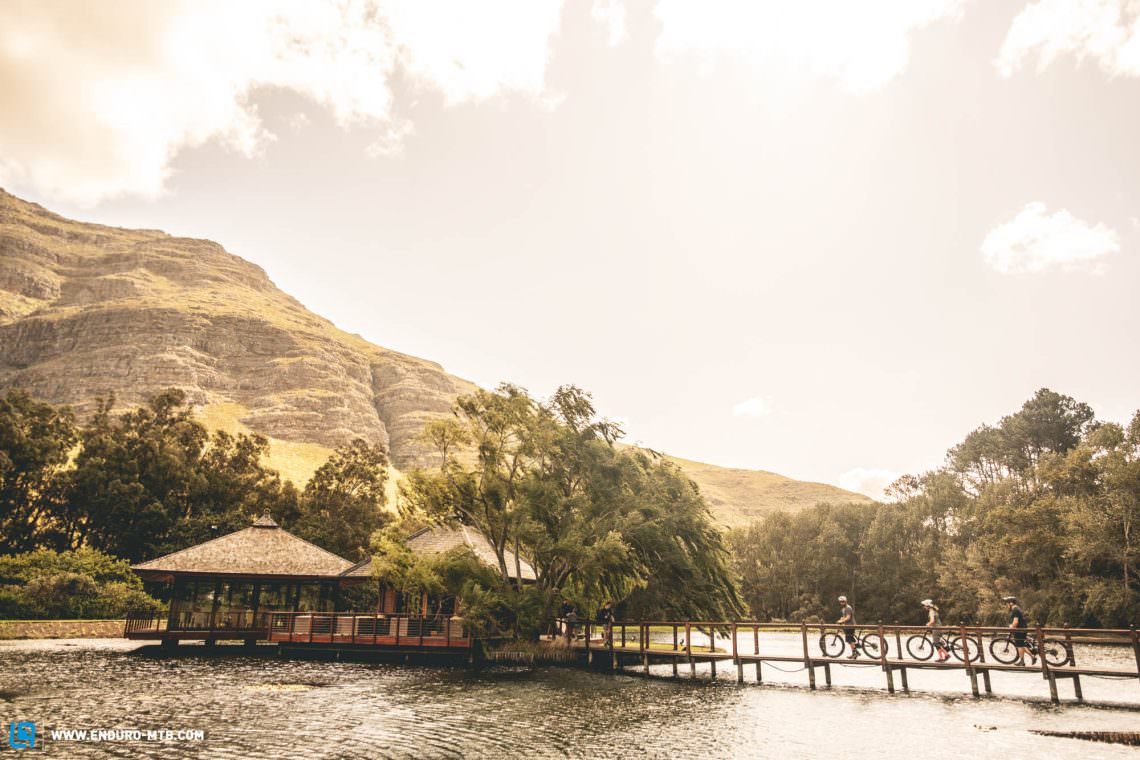
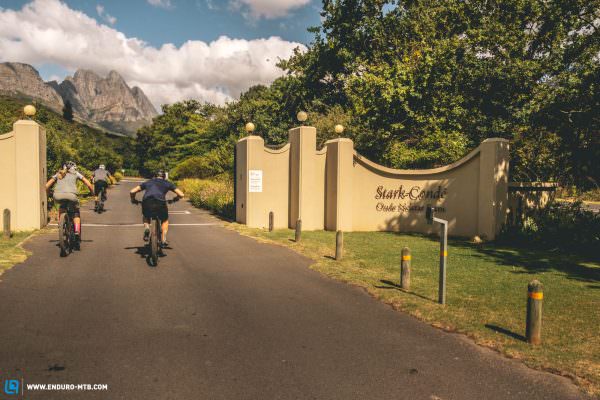
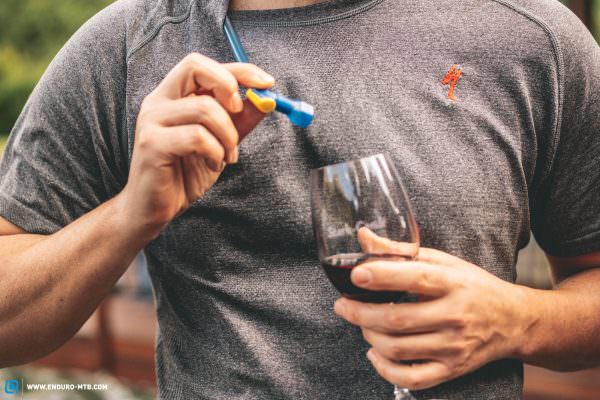
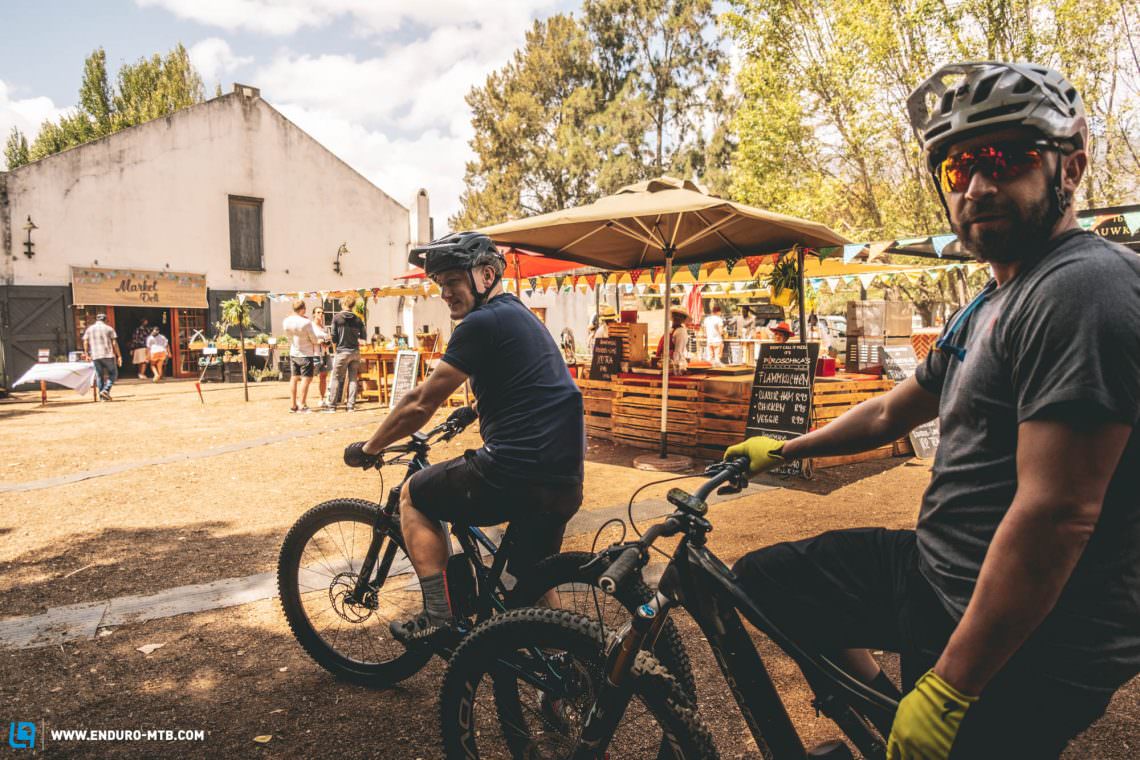
A glass of Stark Condé and gratitude
Stark Condé is a small organic winery that’s been run by the self-taught cellar master José Condé since the early 2000s and is dedicated to the cultivation of Cabernet Sauvignon. The winery’s history began a generation earlier with his father-in-law Hans Schroder, who grew up in Stellenbosch, but spent much of his adult life abroad. He married a Japanese woman, which violated the apartheid law prohibiting intermarriage, forcing him into exile. By the late 1980s, the end of apartheid was drawing near and Nelson Mandela’s release was imminent. Hans and his wife Midori decided it was time to return to South Africa and bought the Oude Nektar farm in 1989, focusing on viticulture.
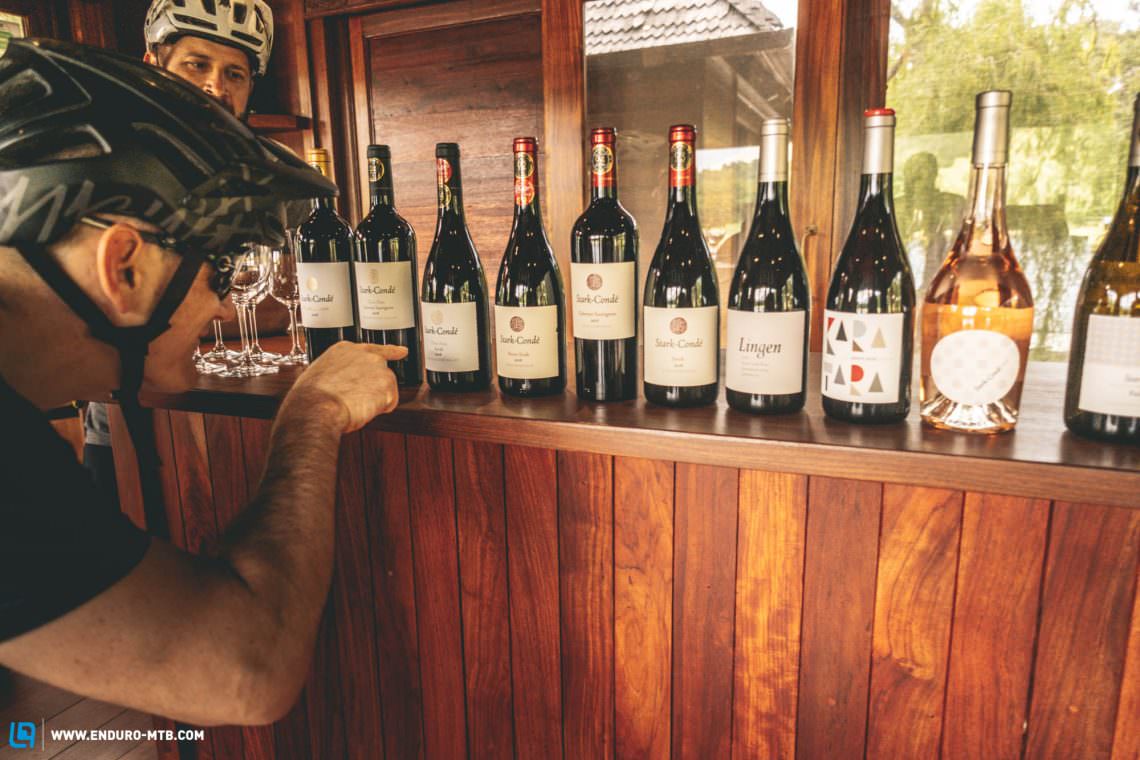
Midori’s oldest daughter Marie and her American husband José also moved to South Africa to support the family. José, who is a graphic designer by trade, originally wanted to open a studio in Cape Town, but his plans changed when he discovered his passion for wine. With an artisan’s attention to detail and a purist’s approach in the wine cellar, José has steadily developed the wines into what they are today: fine, no-frills wines, aged in French oak barrels. While José Condé initially only grew Cabernet Sauvignon, he now grows several grape varieties, from Syrah to Petite Syrah to Sauvignon Blanc, as well as Roussanne, Viognier, Chenin Blanc and Verdelho for his white wine creations. By the way, he designs the wine labels himself, which is no surprise considering his background!
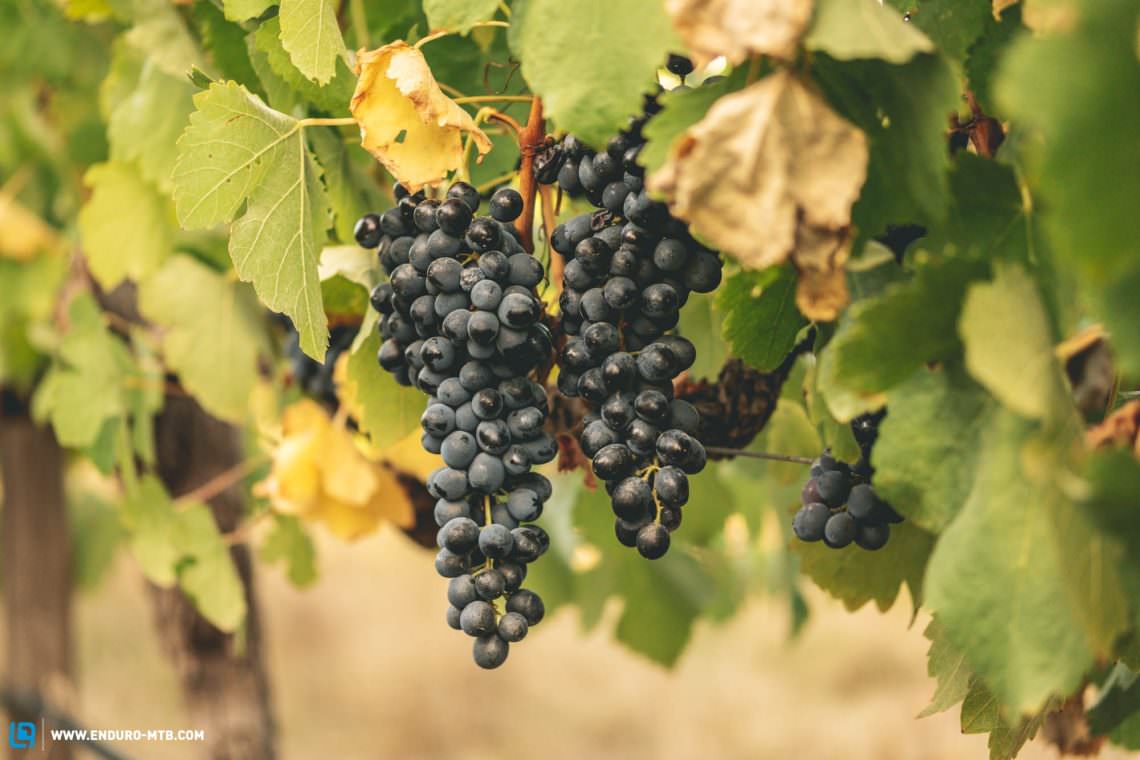
We toast in the middle of an idyllic lake with a view of the mountains, which we traversed on our electric steeds earlier that day. As the wine flows, it brings up new feelings. Gratitude. Gratitude for the opportunities and privileges that we – by which we mean every biker on this planet – have to be able to pursue such an amazing hobby. To play outdoors, discover new places, laugh boisterously and shout for joy on the trail, have encounters with troops of baboons, all in the best of company – and slightly tipsy.
Part II: Will you take the blue or the red pill?
Returning to Stellenbosch, our fears resurface – what if we get mugged? Our conscience chimes in too: can I enjoy this luxury, this paradise, treat myself to the finest food and day-drinking, stroke tame cheetahs on wildlife farms and race through the incredibly beautiful landscape on a € 15,000 bike while so many people live below the poverty line?
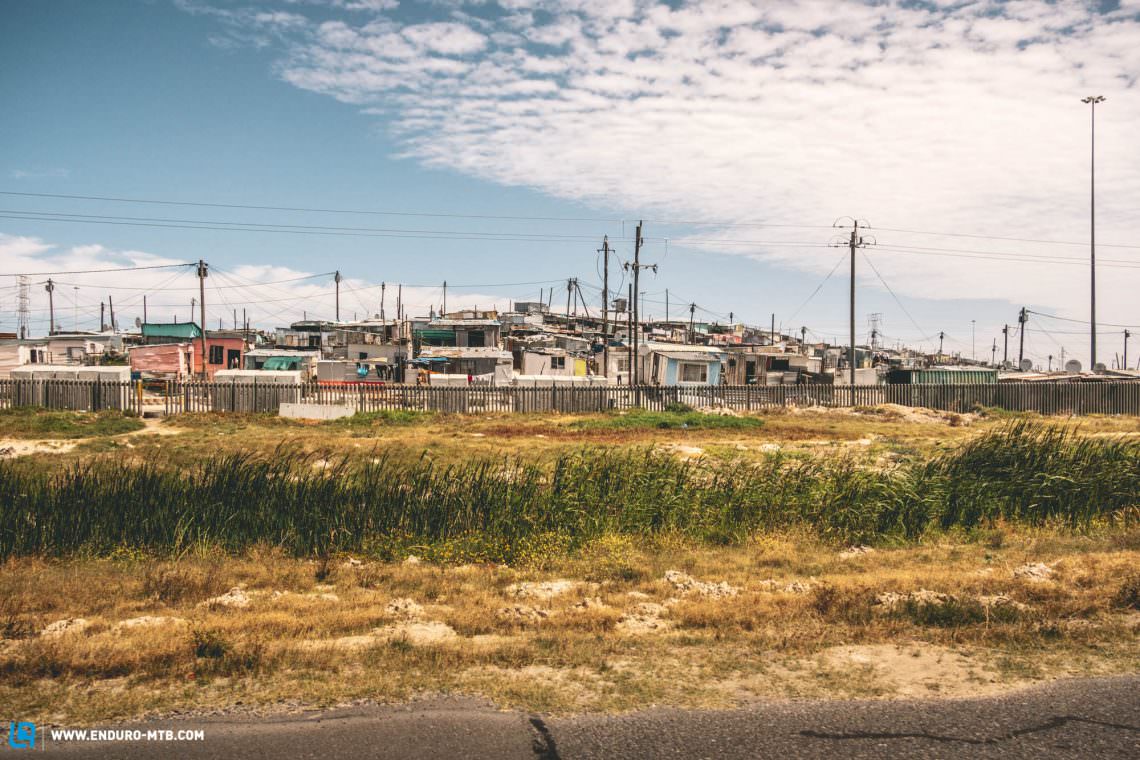
VS
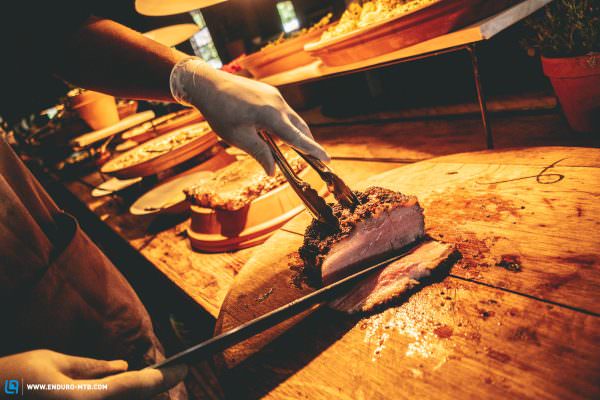
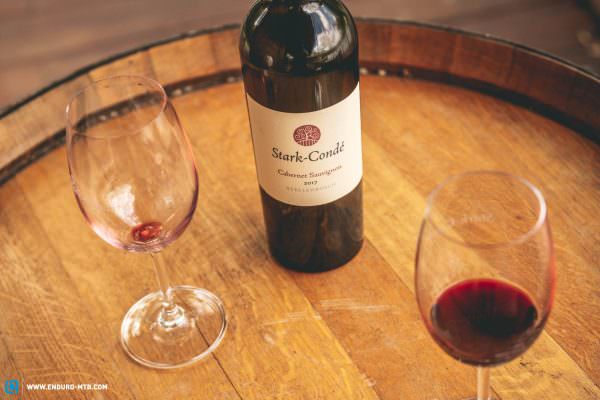
You could jump to the conclusion that the social contrasts in South Africa are reprehensible, but that would be too hasty. Yes, the social situation in South Africa is tough to swallow, but it’s honest to the bone. Anyone who visits South Africa with open eyes is bound to end up like Neo in The Matrix. You have to ask yourself whether you want to swallow the blue or red pill. Whether you want to hide from the truth or look straight in its ugly face. We took the red pill and faced the disturbing truth rather than remaining blissfully ignorant.
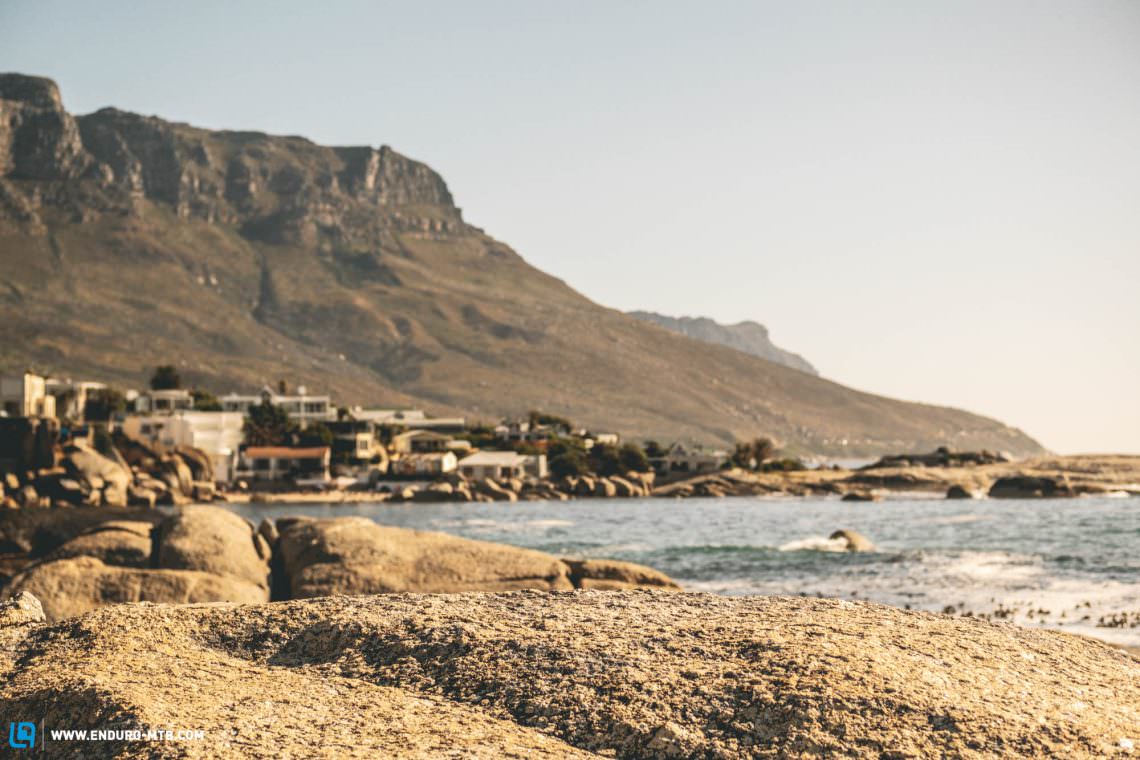
In many parts of the western world, we’ve mastered the art of blocking things out. Unlike in Europe, stark social contrasts are a normal part of everyday life in South Africa. In Europe, you’ll hardly find poverty like you do in the townships and we’ve practically outsourced cheap labour to other countries. We enjoy our riches and consumer goods in abundance while the production of these takes place at far below minimum wages in the Far East. We hardly have any gated communities, but invest millions to “secure” our European borders against “undesirable” refugees coming over the Mediterranean Sea. We’re committed to stopping climate change but only fight the symptoms instead of the causes, as we don’t want to inconvenience our comfortable lives. We think we’re morally superior, propagating democratic values, yet still act opportunistically whenever it suits us. At the end of the day, we tolerate the violation of human rights in poor countries if there are economic advantages or business to be made. We sure talk a lot, demand equal opportunities and equality in our countries, thinking of ourselves as do-gooders as we deal with LGBT+, all the while ignoring the massive contrast to poor countries and how our lifestyle and prosperity is built on them.
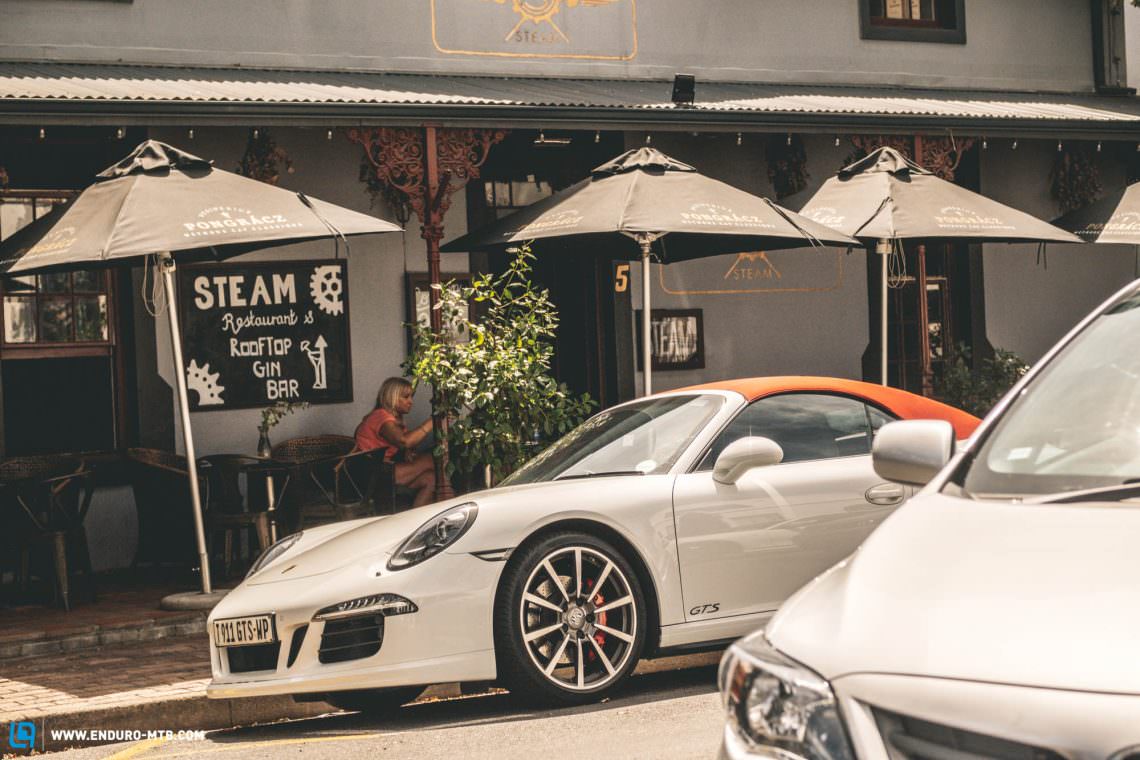
South Africa is a step ahead of us in this sense because it doesn’t try to hide this fact, confronting you with reality every day. Depending on the type of person – and the pill you want to take – this is difficult to swallow at first, but it also makes you aware of the other side of the privileges that many Westerners like us take for granted. It’s rarely as blatantly obvious in Europe.
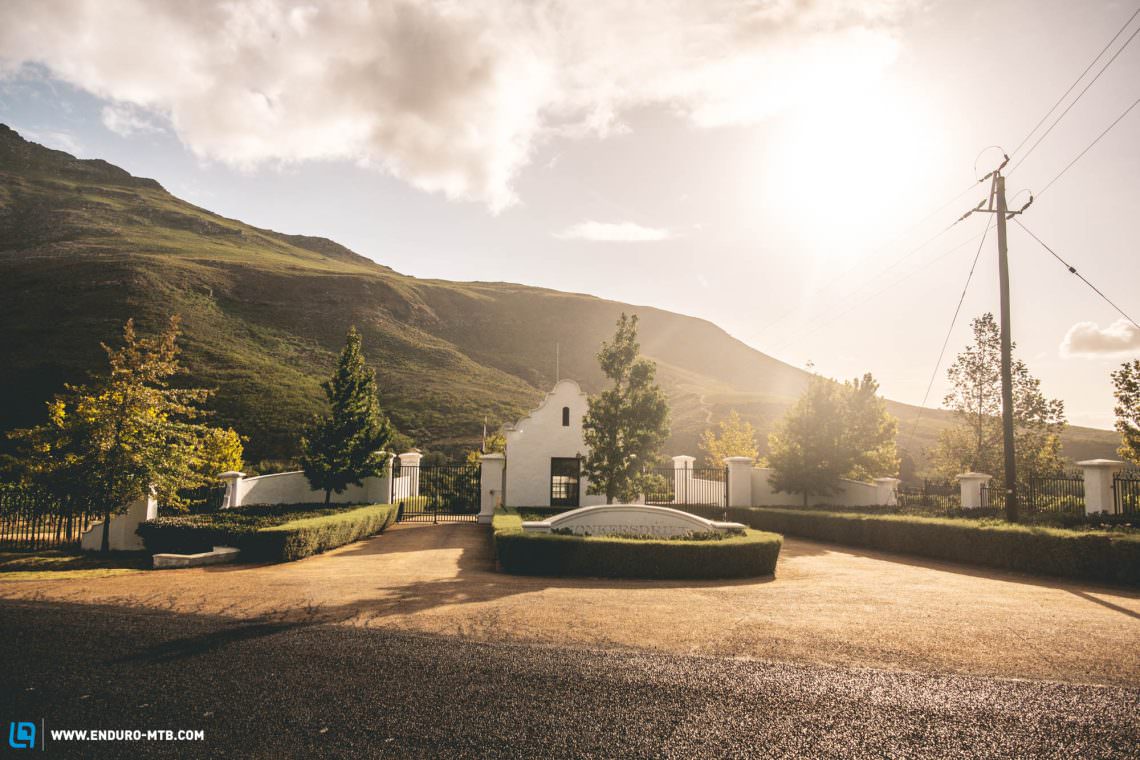
The wine tastes different now
Our visit can’t change the conditions there. On the contrary, tourism is an important pillar of the local South African economy. Moreover, politicians have long been arguing about what a solution to the contrasts and a better world might look like, not just in theory, but also in practice. It’s a problem rooted in history that can’t be solved with a purely Western perspective. After all, it’s the colonialism of the West that created many of these tensions. However, it’s said that self-awareness is the first step to improvement and our perspective has changed since that pivotal experience. We’ve become much more aware of our privileges and what they actually cost.
No one returns from a journey the same person and it certainly was the case here. Stellenbosch is a biker’s and wine lover’s paradise – there’s no doubt about that. There are plenty of well-built trails and equally excellent wines. Whether you’re a beginner or an expert, you’re sure to find a trail that suits your style and skill level. If you stick to the rules and follow the locals’ tips, you can travel the country safely and enjoy the overwhelming landscape and hospitality. Whether you want to swallow the red or blue pill is up to you. You can do both in South Africa – here, heaven and hell are next-door neighbours.
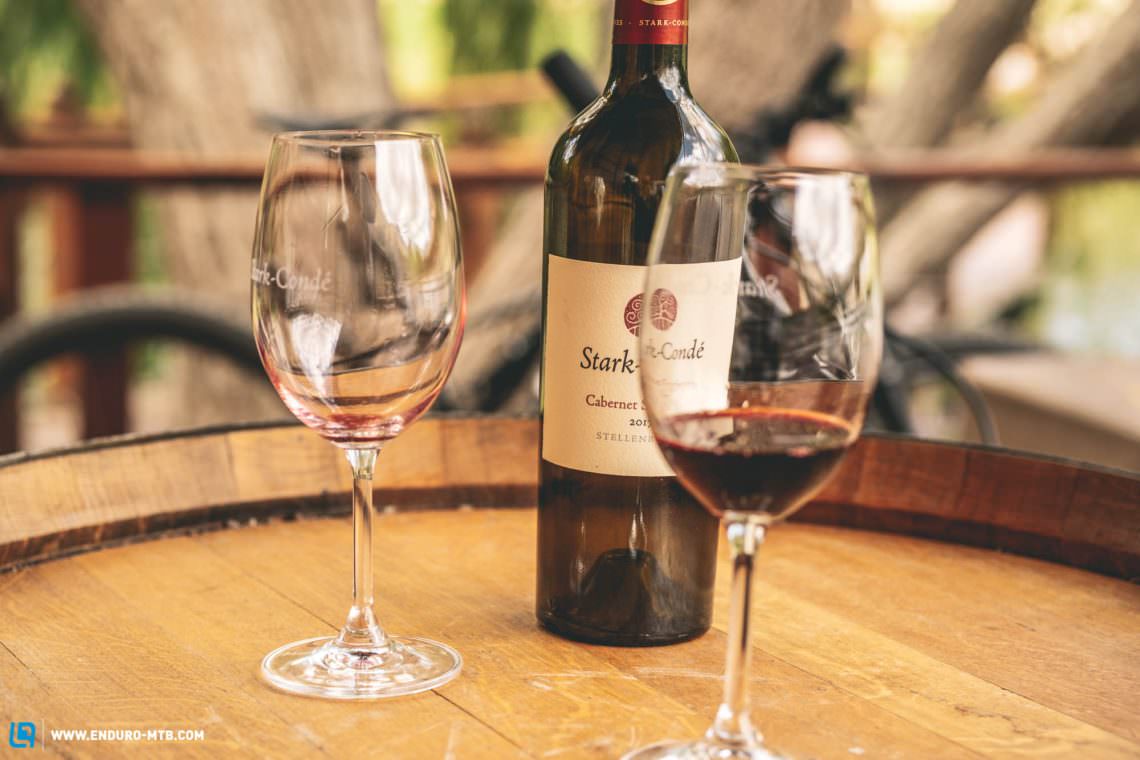
We wouldn’t hesitate to visit South Africa again. It has changed the way we see ourselves. Even our favourite wine tastes different now – more intense, richer in contrast and somehow more complex. Because we were there, the wine has been given a face that reminds us of paradise and the price that others pay for our privileges.
What to avoid in South Africa
- Heat – fortunately, the cool ocean and mountain breeze temper the climate. However, it can still get very hot, occasionally
reaching up to 40 degrees Celsius at midday. If that’s too much for you, plan to ride early in the morning or in the late
afternoon. - Risks – locals advise not to venture out alone, but to ride in groups.
- Snakes – yes, you read that right. South Africa has a lot of snakes, including extremely poisonous specimens such as the
Cape Cobra, which likes sunbathing on the trails. - No-go areas – South Africa has a stark divide between the rich and the poor. It’s best to ask the hotel staff which areas
to steer clear of to avoid dicey situations. - Traffic – in South Africa, you drive on the left side of the road, which cyclists should also keep in mind. Always remember
to drive or ride on the other side, especially at roundabouts.
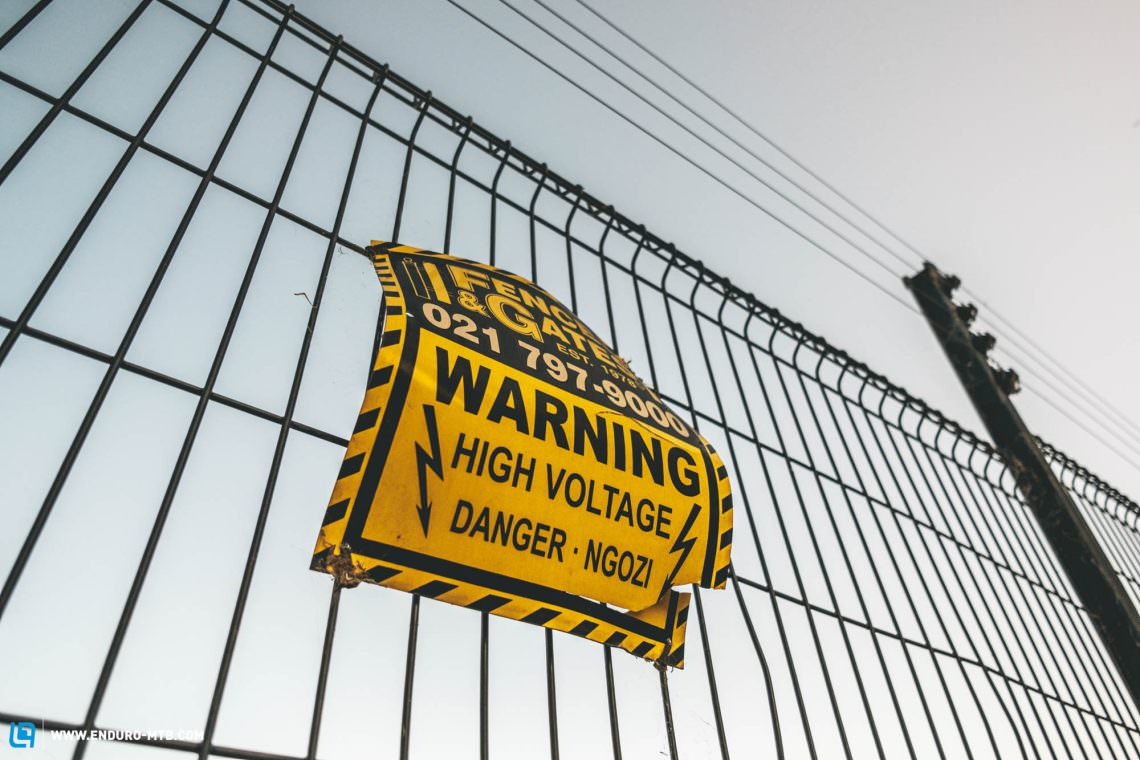
What to enjoy in South Africa
- Fantastic nature – South Africa is famous for its fauna and flora.
- Well-developed trails – beautiful landscapes and endless trails: South Africa is an Eldorado for mountain bikers.
- World-famous wineries – visiting the attractive wineries is a must. No wonder the wines from Stellenbosch are among the
best in the world. - Baboons – the cheeky baboons are an attraction in and of themselves and lots of fun to watch. But be careful, troops of
baboons can occasionally get aggressive, and you should never feed them. - No jet lag – the flight time from Germany to Cape Town is around 12 hours. The good thing about it is there is little to no time difference to Germany – one hour in winter.
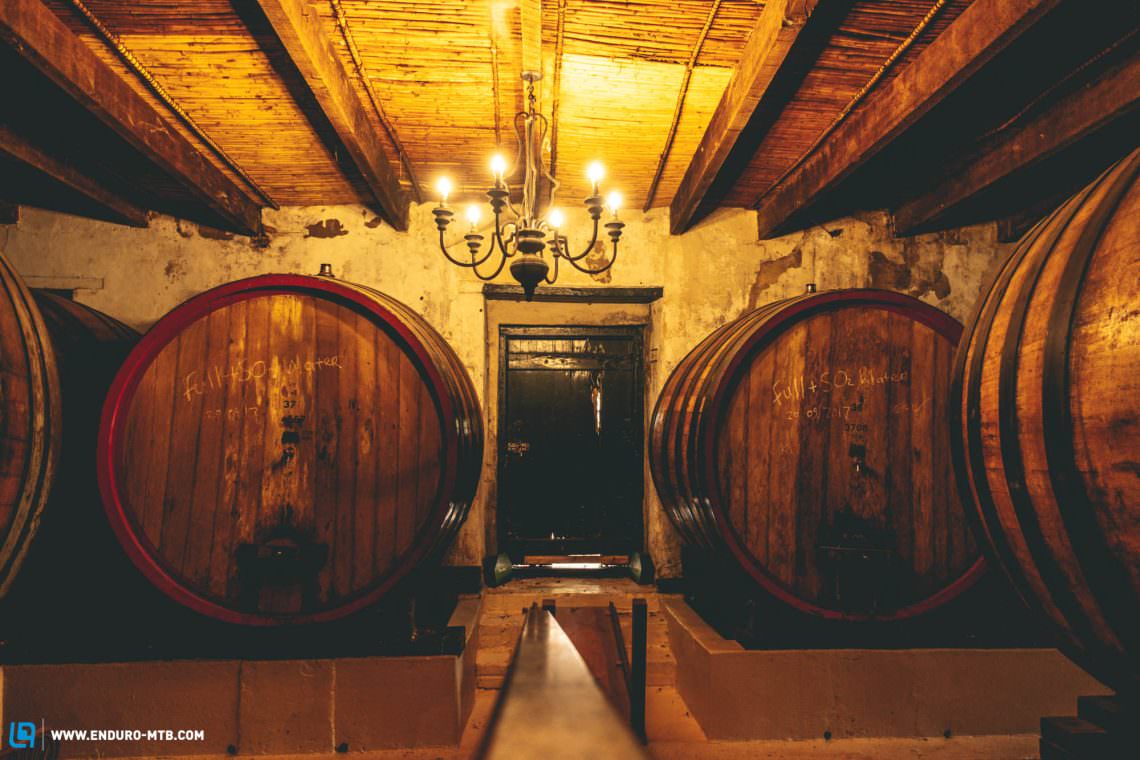
Did you enjoy this article? If so, we would be stoked if you decide to support us with a monthly contribution. By becoming a supporter of ENDURO, you will help secure a sustainable future for high-quality mountain bike journalism. Click here to learn more.
Words: Robin Schmitt, Susanne Feddersen Photos: Robin Schmitt




